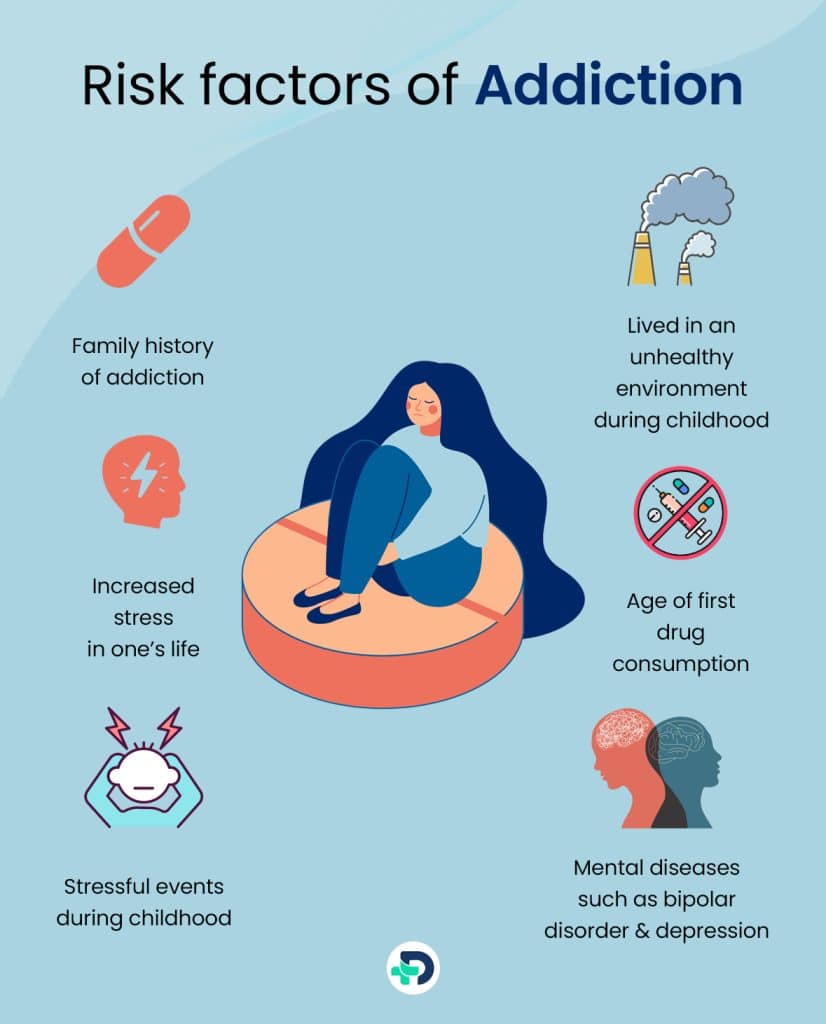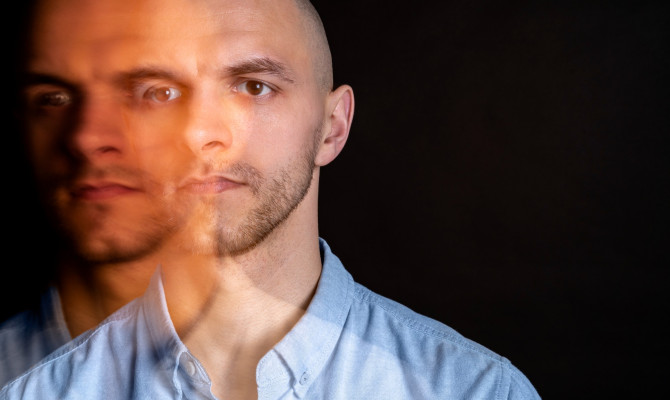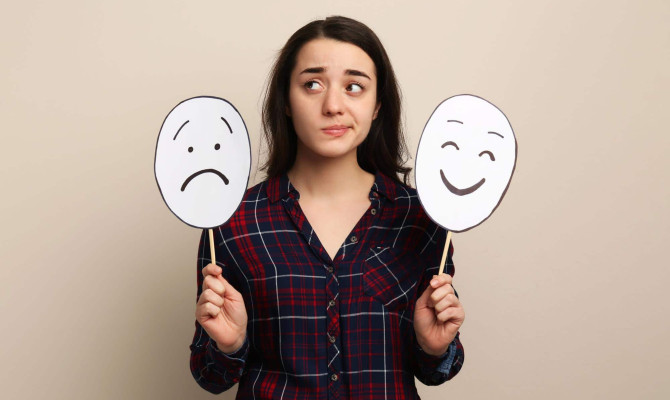What is Addiction: Types, Stages, Symptoms and Treatment

- Addiction
- 22 Aug 2023
Overview
What is Addiction?
Addiction is a persistent disease that involves continually looking for a substance or activity regardless of its harmful effects. Addiction can notably influence health, family relationships, and general lifestyle.
ASAM (American Society of Addiction Medicine) states addiction is a continual brain disorder due to incorrect decisions and lack of self-control. The mind’s behavior alters with addiction.
People with addiction will have increased cravings for the behavior or substance, become unemotional, unable to resist themselves, and refuse to understand the consequences of the behavior. With time, addiction worsens, leading to serious health issues and substantial financial loss.
One should immediately seek medical help on experiencing addiction symptoms 1Overview| Researched based study from Sciencedirect.com

Here are some quick facts about addiction
- Globally, 1 out of 3 people has some addiction, either substance or behavior.
- The most severe addiction in the world is alcohol and drugs
- In the United States, alcohol addiction (alcohol use disorder) is the most common, affecting around 10% of people 12 years and older2Overview| Researched based study from Hhs.gov
Types
Types of Addiction
The two types of addiction are as follows:
- Substance addiction
- Behavioral addiction
Substance addiction
Substance addiction (substance use disorder) is a mental disease in which the person repeatedly desires to take the substance despite its destructive effects. Substances can be either prescribed medicines or recreational drugs.
Some of the common substances that cause addiction are as follows:
- Caffeine
- Alcohol
- Marijuana
- Inhalants
- Sleeping pills
- Cocaine
- Opioids
- Nicotine
Behavioral Addiction
Behavioral addiction is the action that gives immense pleasure to the brain but negatively impacts daily life activities viz; physical, social, and mental. It might also cause monetary problems in some cases.
Some of the common behavior that causes addiction is as follows:
- Gambling
- Having sex
- Pornography viewing
- Video gaming
- Overusing the Internet and phone
- Shopping
- Anger as a managing strategy 3Types| Researched based study from Sciencedirect.com
Stages
Stages of Addiction
There are four stages of addiction. They are as follows:
Stage 1(Initial use)
- In this stage, a person uses the substance out of curiosity or to experience its aftereffects.
Stage 2(Regular use)
- In this stage, the person gets habituated to the substance and starts using it in social gatherings and parties.
Stage 3(Tolerance)
- In this stage, due to substance overuse, the person does not get the desired pleasure at the same amount and gradually increases the dose irrespective of the consequences.
Stage 4 (Dependence)
- In this stage, the person becomes dependent on the substance for normal functioning. Despite its harmful effects, he engages in the activity regularly and often daily 4Stages| Researched based study from Nlm.nih.gov
Symptoms
Symptoms of Addiction
The addiction symptoms differ among different persons depending on the substance or activity.
Some of the common symptoms of addiction are as follows:
- Personality change
- Memory loss
- Sleeplessness
- Increased weight loss and lack of hygiene
- Poor performance at school or college
- Inability to take up responsibilities at home and office
- Failure to stop consuming the substance
- Signs of sweating, body shaking, and vomiting while trying to stop
Symptoms of emotional changes associated with addiction are as follows:
- Trouble maintaining relationships with people who identify with addiction
- Increased anxiety and depression
- Increased unhappiness
- Blaming other people for hardships in life
- Behavioral changes such as increased privacy
- Intense thinking of the addicted substance
- Impractical assessment of the positive and negative effects of the substance 5Symptoms| Researched based study from Nlm.nih.gov
Causes
Causes of Addiction
- The leading cause of addiction is the chemical imbalances in the brain. Addictive substances create an enjoyable feeling both mentally and physically.
- Substance use increases the dopamine flow to the brain, giving immense pleasure and satisfaction. However, increased dopamine production harms health, affecting normal behavior and thinking capacity. Over time the same amount of substance does not give the same pleasure. Gradually the person increases the dose, which leads to addiction 6Causes| Researched based study from Nlm.nih.gov
Diagnosis
Diagnosis of Addiction
- For addiction diagnosis, the health professional will refer to a specialist such as a psychologist, psychiatrist, or counselor.
- The specialist might enquire about the addictive substance used and the subsequent problematic behaviors. He will then conduct an in-depth physical examination and might order blood and urine tests. The tests enable the doctor to rule out any health condition and to get a general detail of the overall health 7Diagnosis| Researched based study from Sciencedirect.com
Risk factors

Risk factors of Addiction
- Family history of addiction
- Increased stress in one’s life
- Lived in an unhealthy environment during childhood
- Stressful events during childhood
- Living in an environment where friends and peers are engaged in some addiction
- Mental diseases such as bipolar disorder and depression
- Age of first drug consumption (young people can quickly get addicted) 8Risk factors| Researched based study from Sciencedirect.com
Complications
Complication of Addiction
Untreated addiction can lead to severe consequences both physically and socially. Some of them are as follows:
- Heart problem
- Brain damage
- HIV (human immunodeficiency virus) infection
- Relationship problem (Divorce)
- Financial crisis
- Legal issues (due to law breaking) 9Complications| Researched based study from Nlm.nih.gov
Treatment
Treatment of Addiction
The treatment plan for addiction helps a person overcome the addiction problem in a planned manner.
The doctor might recommend treatment options which might include the following:
Medications
- Patients are prescribed drugs that decrease the urge for drug intake and manage withdrawal symptoms.
- People with mental health conditions, viz; depression and bipolar disorders, are also prescribed drugs to tackle the mental illness.
Counseling
- Experts for psychological problems, called counselors, will inquire about various aspects of the patient’s life, including family history, life experiences, childhood events, and other substance use aspects. They will also review mental health, family relations, the legal system, and economic condition.
- The counselor also provides education and support and tries to develop a friendly relationship with the patient to convince the patient to stop substance use or to come out from anxiety and depression.
Medical assistance for withdrawal symptoms
- Certain substances withdrawal can show up fatal withdrawal symptoms. Special hospital units are available to monitor and take care of withdrawal symptoms.
Managers check the treatment process
- The managers keep track of the treatment process and coordinate and assist the patient in the ongoing treatment procedure.
Support groups
- Support groups help people manage addiction. The groups allow people to share their experiences and provide relevant solutions to their problems. They also offer continual support to the patients 10Treatment| Researched based study from Nlm.nih.gov
Withdrawal symptoms
Withdrawal symptoms of Addiction
The person who stops taking the addicted substance might experience several symptoms. They are as follows:
- Irritability
- Mood change
- Extreme tiredness
- Excessive sweating
- Body shaking
- Body pain
- Hallucination (false perception of things)
- Anxiety
- Depression
- Nausea and vomiting
- Diarrhea 11Withdrawal symptoms| Researched based study from Nlm.nih.gov
Prevention
Prevention of Addiction
- Avoid using substances or medicinal drugs that have the chance of developing an addiction.
- Exercise and meditate regularly during stressful times. Those still having difficulty managing stress should talk to a healthcare provider about ways to minimize stress.
- People with a family history of addiction should consult a doctor for ways to lower the addiction risk 12Prevention| Researched based study from Nlm.nih.gov
Support groups
Support groups & organizations for Addiction management
To successfully control addiction, one has to go through a long process that requires much time. Many organizations are there that help contact the support groups.
Some of the examples of the support groups are as follows:
- Addiction information and expert
- Online forums
- Treatment plans
- Online forums
Some organizations that help addicted persons are as follows:
- The Amy Winehouse Foundation
- Shatterproof
- Faces and Voices of Addiction
- Alcoholic anonymous
- Gamblers Anonymous
- Narcotics Anonymous
- Marijuana Anonymous
- Cocaine anonymous
- Sex addicts anonymous
- Community Anti-Drug Coalition of America
A strong support group is crucial for successful recovery. One must inform family, friends, and near and dear ones during the treatment process to avoid possible triggers and to keep oneself on the correct path.
To tackle addiction, one can contact the following Hotlines for free guidance.
- American addiction Center
- National Drug Helpline
- National Suicide Prevention Helpline
- Partnership to end addiction
- Crisis Text Line
- Substance Abuse and Mental Health Services Administration 13Support groups| Researched based study from Nlm.nih.gov
Takeaway
Key Takeaways
- Addiction is a severe and persistent dependence on an activity or substance. An addicted person cannot stop the substance use suddenly and might experience specific withdrawal symptoms.
- Addiction can ruin relationships and can hamper carrying out everyday activities.
- Addiction treatment is often effective and involves counseling, medication, and family support.
- Untreated addiction can lead to fatal severe health conditions. It can even ruin personal relationships and create bankruptcy and legal issues. It can also generate family problems that can run for generations.
- Most people cope with addiction and live a healthy life with on-time treatment. However, recovering from behavioral addiction and substance use disorder is challenging.
Any feedback on this article?
 This Articles content was accurate
This Articles content was accurate Very Informative Article
Very Informative Article I have a question or a comment
I have a question or a comment
 This article contains inaccurate content
This article contains inaccurate content This article was not helpful
This article was not helpful I have a question or a comment
I have a question or a comment
We appreciate your helpful feedback!
Checkout our social pages
References
-
Science Direct
Addiction | Overview
-
U.S Department of Health & Human Services
'SAMHSA Announces National Survey on Drug Use and Health (NSDUH) Results Detailing Mental Illness and Substance Use Levels in 2021 | Overview
-
Science Direct
Types of addiction | Types
-
National Library of Medicine
What Is Addiction? | Stages
-
National Library of Medicine
Addiction and Cognition | Symptoms
-
National Library of Medicine
The neurobiology of addiction | Causes
-
Science Direct
Addictive Disorder - an overview | Diagnosis
-
Science Direct
Risk Factor for Substance Use - an overview | Risk factors
-
National Library of Medicine
Substance Use Disorder | Complications
-
National Library of Medicine
5 Stages of Treatment | Treatment
-
National Library of Medicine
Withdrawal Syndromes | Withdrawal symptoms
-
National Library of Medicine
Prevention of substance abuse: a brief overview | Prevention
-
National Library of Medicine
Benefits of peer support groups in the treatment of addiction | Support groups





































